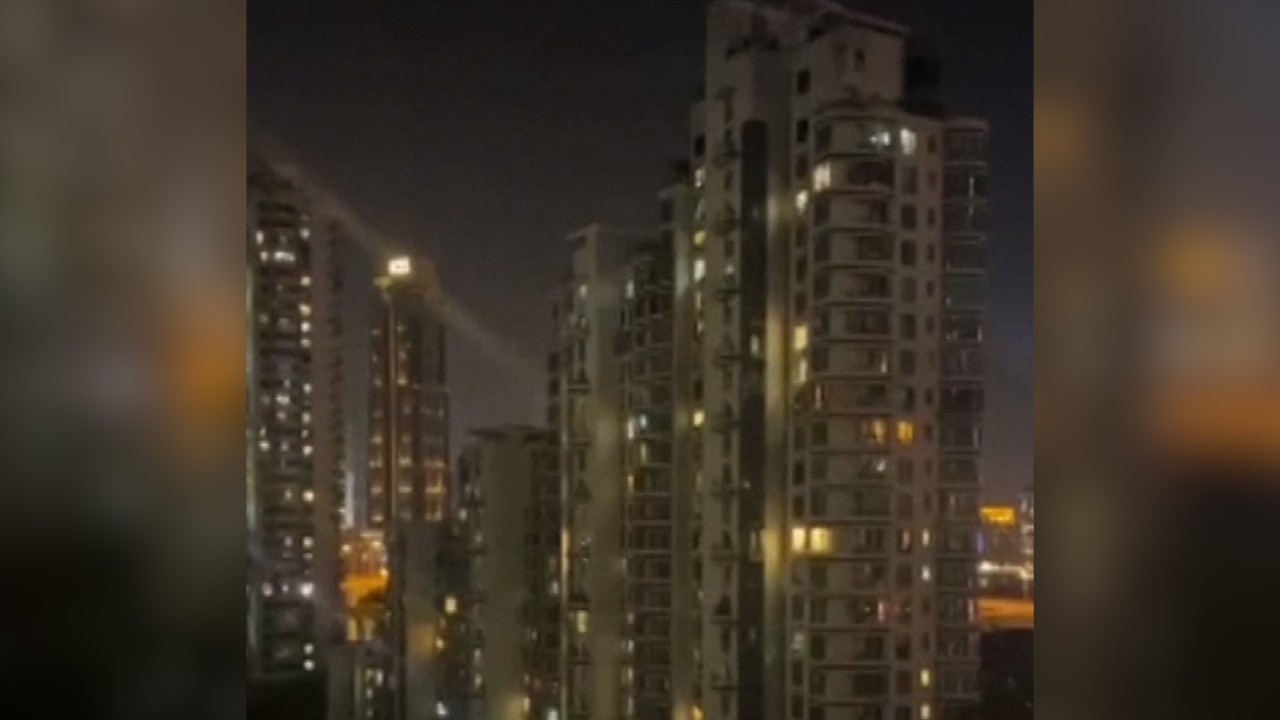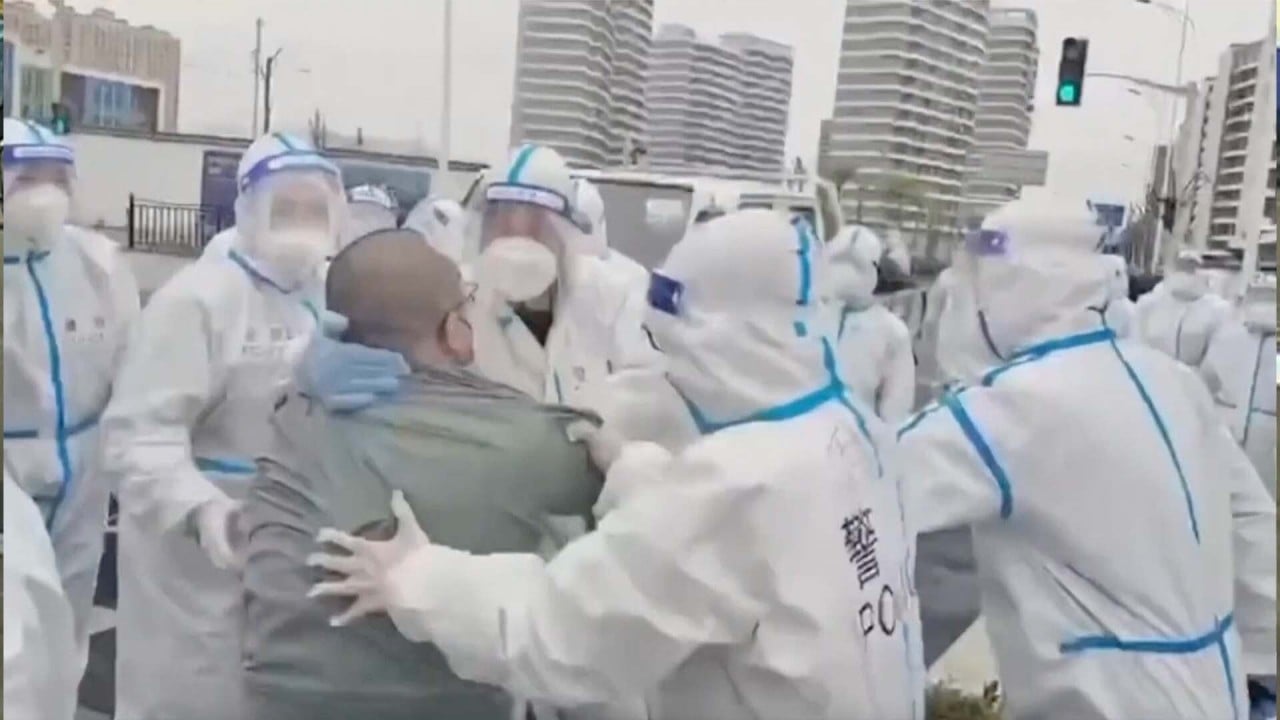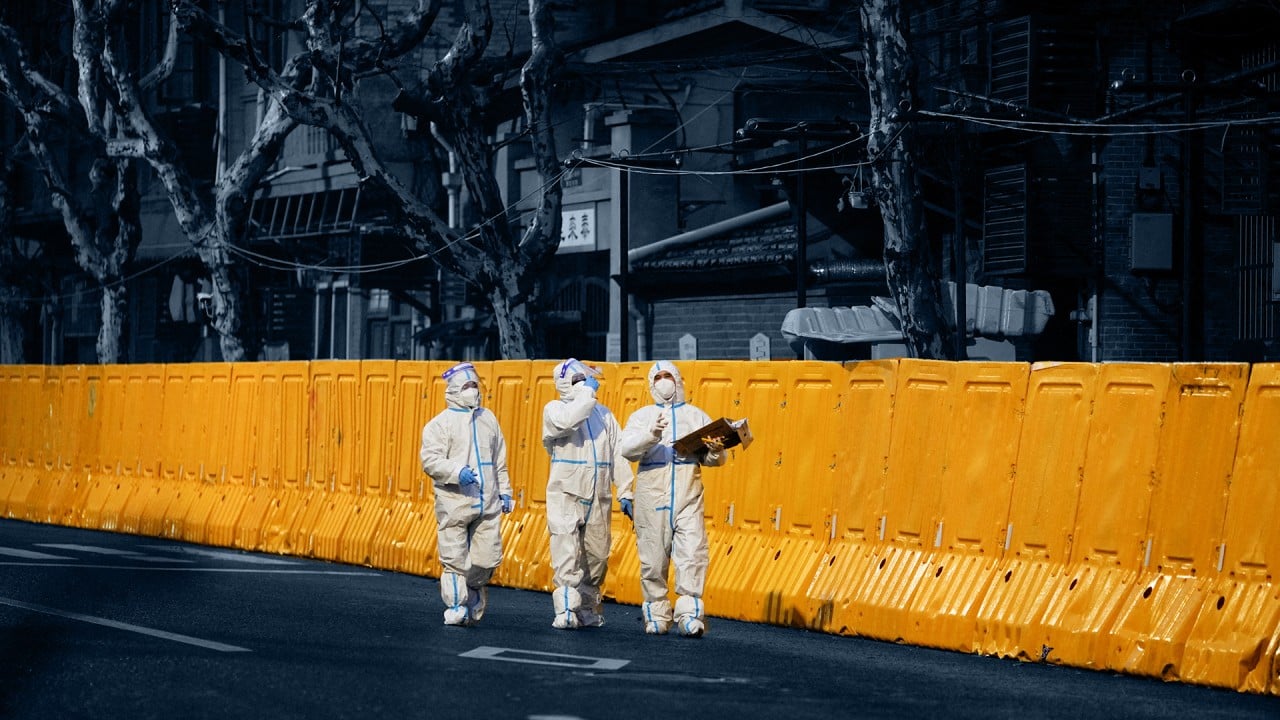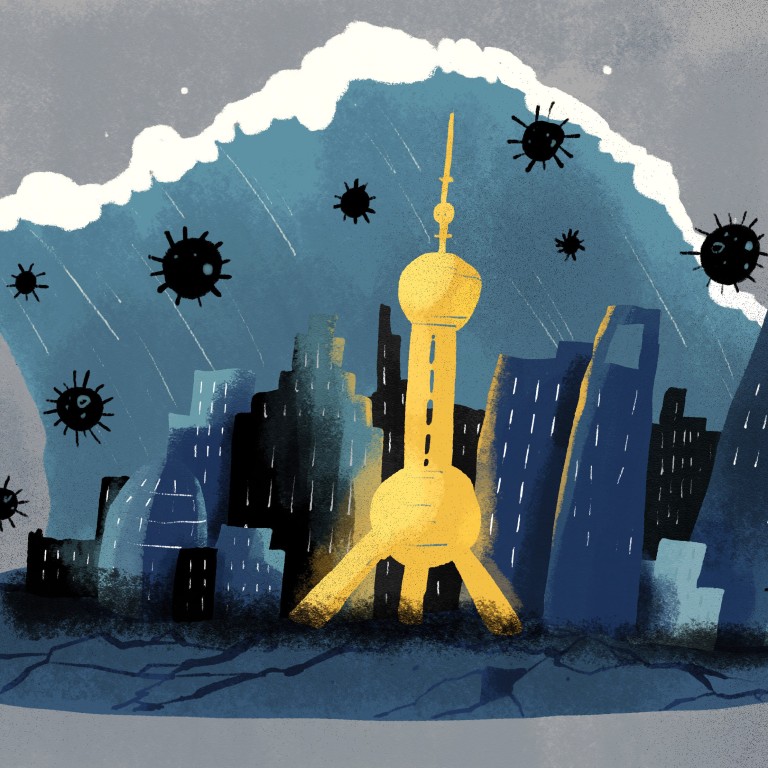
Why Shanghai’s Covid crisis could have wider political implications
- Running the city has traditionally been a route to the very top of Chinese politics, but that may change at this year’s Communist Party national congress
- The city’s leaders have been confronted with growing public anger, but political observers warn it is difficult to say if this will harm their future prospects
Shanghai’s struggles to contain the current Covid-19 outbreak and get back to normal have not only greatly embarrassed the city’s leaders but have also cast a shadow over their prospects ahead of a major shake-up of the Chinese Communist Party leadership.
The country’s financial capital has been in effective citywide lockdown for almost three weeks, causing serious disruption to its 25 million residents and the economy.
The latest wave of infections in Shanghai – with 270,000 recorded since March 1 – was the most serious in the country since the disease first emerged in Wuhan two years ago.
Shanghai lockdown could cut China GDP by 3 per cent in April
While any public discussions and sharing of criticism of officials are tightly censored in China, reports of sporadic protests and run-ins between Shanghai residents and quarantine staff have continued to circulate on social media.
One embarrassing and widely circulated video showed the municipal party chief Li Qiang being given a public dressing down by an elderly woman on Monday during an inspection of a quarantined neighbourhood where the residents complained bitterly about the lack of basic goods and harsh conditions in quarantine.
Then on Friday, vice-mayor Peng Chenlei apologised for letting the people down. “What I want to say is that there are many shortcomings in our work and we humbly ask for supervision and suggestions from the public and I can assure you that we will do our best to improve,” Peng said.
The lockdown has also been met with an outpouring of dissatisfaction from expatriates who live in the city. Because of the stay-home order, French citizens were told that they could not cast their votes in the first round of the presidential election last Sunday.
On Monday, the US State Department ordered the departure of non-emergency employees and their family members from its consulate in Shanghai amid concerns about their safety and welfare.
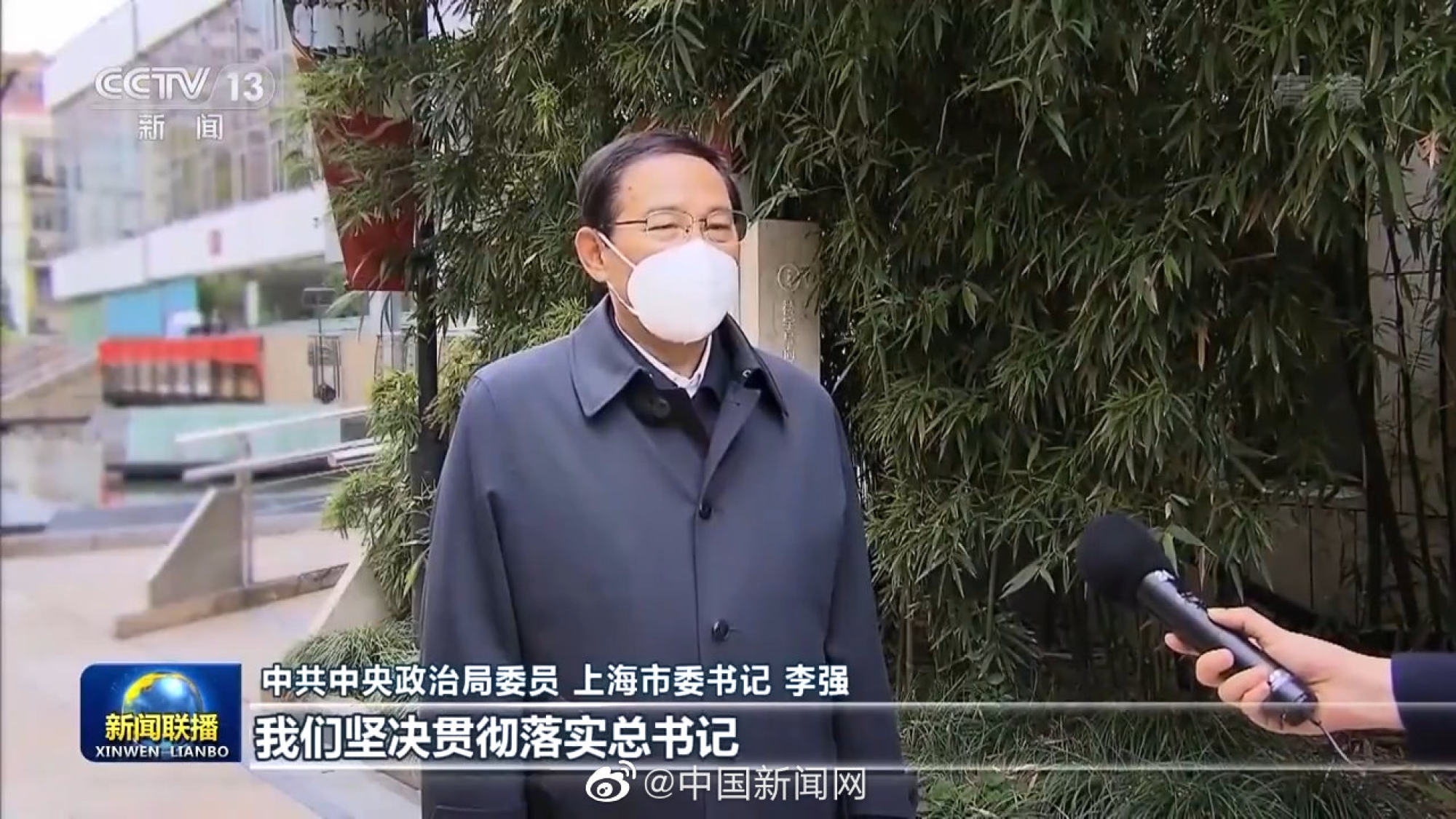
The evacuation order has drawn an angry response from Beijing with foreign ministry spokesman Zhao Lijian accusing the US of “weaponising” the situation and “smearing China” for its lockdown measures.
Shanghai’s struggle to contain the virus has clearly made Beijing worried. Vice-Premier Sun Chunlan, who is leading Beijing’s response to the pandemic, has been stationed in the city for more than two weeks to direct its efforts.
Speaking to Shanghai cadres on Thursday, Sun stressed that there could be no wavering over the zero-Covid policy and officials must do more to address public concerns.
“Concrete and strict measures must be taken, and a new action plan must be made, as we aim to achieve the zero-Covid goal as early as possible,” Sun said.
In response to public criticism, officials have pointed out the high transmissibility of the Omicron coronavirus and the logistical challenges in administering citywide mass testing and providing daily supplies for the city’s population.
Shanghai’s Covid-19 outbreak stalls plans for China’s third aircraft carrier
But even when the current outbreak ends, increasing numbers of sceptics – at home and abroad – will continue to question the sustainability of the country’s zero-Covid policy.
Miao Xioahui, a retired epidemiologist in Shanghai, posted on social media last week that the approach was futile since there would always be new variants after Omicron.
A week before Shanghai announced its two-phase lockdown in late March, Wu Fan, a member of Shanghai’s Covid-19 response task force, explicitly ruled out the nuclear option of a full lockdown.
“If the city came to a complete stop, there would be a lot of international cargo left floating on the East China Sea, which would have an impact on the national and global economy. All Shanghai citizens should have such a big picture view,” she said in mid-March.
Officials have yet given an estimate of the economic cost of the lockdown. But in a paper published on April 3, a group of economists from universities in mainland China, Hong Kong and the US estimated that a one-month full lockdown in China’s four largest cities – Beijing, Guangzhou, Shanghai and Shenzhen – could cause the nation’s real GDP to drop by 8.6 per cent.
The lockdown in Shanghai may carry a high political cost as Communist Party’s national congress approaches. Traditionally, the five-yearly meeting sees the promotion of top Shanghai cadres to the upper echelons of the party.
Li, the party chief and a member of the policymaking Politburo, was widely tipped as a front runner for promotion to the Politburo Standing Committee, the top policymaking group. His deputy, mayor Gong Zheng, was also seen as a rising star.
Shanghai’s ‘Covid coaches’ step up to take some of the stress out of lockdown
Deng Yuwen, a researcher at the New York-based think tank, China Strategic Analysis, said the recent chaos in Shanghai “brought uncertainty” but the final outcome was unpredictable.
“Shanghai has adopted a more targeted model to contain Covid-19. It has done fairly well in the past two years and was hailed as the most successful example in China as it had kept the virus at bay without resorting to drastic measures,” Deng said.
He added that it was hard to say if Beijing had fully signed off on Shanghai’s more relaxed approach in the beginning of the recent outbreaks.
“Shanghai officials have probably underestimated Omicron and failed to explore a new way for China’s overall fight against Covid. Their political advancement is probably going to face some setbacks,” he said. “It is hard to justify a promotion given what’s happening.”
But Gu Su, a political analyst from Nanjing University in eastern Jiangsu province, said Shanghai would remain a key stepping stone for any aspiring Chinese leaders since it was the country’s pivotal economic and financial centre.
Over the years, many national leaders who boast a connection with Shanghai have reached the pinnacle of power in China. Besides President Xi Jinping, who spent seven months in Shanghai as its party boss in 2007, and first Vice-Premier Han Zheng, these include former president Jiang Zemin and former premier Zhu Rongji.
Apart from Li, all but one of the nine party secretaries of Shanghai since 1987 have ascended to the Politburo Standing Committee. The only exception was Chen Liangyu, who was jailed in 2008 on corruption charges.
“While Jiang played a role in elevating Shanghai’s political status, it is obvious that being familiar with the city’s economic development has been set as a must for future leaders since the Deng Xiaoping era,” Gu said.

“All those who are identified for future promotion must have experience in managing Shanghai for a period, familiarise themselves with the running of the mainland Chinese city with the biggest global reputation.”
Gu said Shanghai’s importance was growing as it was not only a major hub for the affluent Yangtze River Delta, but also one of the few cities in the country that could make up for economic shortfalls in other parts of the country.
China’s state media says country must stick to zero-Covid policies
Alfred Wu, an associate professor at the Lee Kuan Yew School of Public Policy at the National University of Singapore, said it would be too early to determine the political impact of the Shanghai outbreak.
He pointed out that other Shanghai leaders had also been promoted to the party’s top echelons despite disturbing incidents under their watch.
Yu Zhengsheng, who succeeded Xi in 2007, was made a member of the Politburo Standing Committee after completing his five-year term as the city’s party chief in spite of a major residential building fire that killed at least 58 people in 2010.
Vice-Premier Han also made it to the Politburo Standing Committee in 2017 – three years after 36 people were killed in a New Year stampede.
Wu also said that since Xi came to power in 2012, the president has broken many “old rules” in the promotion of cadres, making it difficult to predict the new leadership line-up given China’s opaque political system and Xi’s governing style.
“Many promotion rules like the retirement age have changed in Xi’s era, so it is very hard to predict what is going to happen to [Shanghai’s top leadership],” Wu said.


